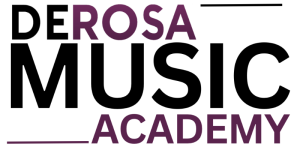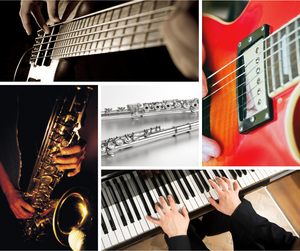Our Guide to Practice makes Perfect for 2024
Dec 30, 2023
Best Practice Techniques for Musical Instruments
Behind every enchanting melody and soul-stirring symphony lies the dedication of musicians who have honed their craft over many years with diligent practice. Whether you're a seasoned musician or a beginner embarking on a musical journey, adopting effective practice techniques is crucial for musical develpoment.
-
Consistency:
- Establish a regular practice routine to build muscle memory and enhance overall proficiency.
- Short, focused practice sessions are often more effective than prolonged, unfocused ones.
-
Warm-Up Exercises:
- Begin each practice session with warm-up exercises tailored to your instrument. This helps prevent injuries and ensures a smoother playing experience.
- Focus on scales, arpeggios, and simple exercises to gradually prepare your muscles and mind for more challenging tasks.
-
Set Specific Goals:
- Break down your practice sessions into specific goals, such as mastering a particular piece, improving technical skills, or refining expression.
- Clearly defined goals provide direction and motivation, making your practice sessions more purposeful.
-
Mindful Practice:
- Engage in mindful practice by staying fully present and focused on the task at hand.
- Pay attention to details such as tone, articulation, and dynamics. Quality practice is more valuable than quantity.
-
Use a Metronome:
- Incorporate a metronome into your practice to develop a steady sense of timing and rhythm.
- Gradually increase the tempo as you become more comfortable, ensuring precision in your playing.
-
Record and Review:
- Record your practice sessions to identify areas for improvement. Listening to recordings provides valuable insights into your playing style and helps refine your technique.
- Practise in front of a mirror, this will help you identify any issues with posture
- Regular self-assessment is a powerful tool for continuous growth.
-
Vary Your Repertoire:
- Explore diverse musical genres and styles to broaden your musical vocabulary.
- Playing different types of music enhances adaptability and creativity, enriching your overall musical experience.
-
Technical Exercises:
- Devote time to technical exercises that target specific challenges on your instrument.
- Work on finger strength, dexterity, and coordination exercises to overcome hurdles in your playing.
-
Take Breaks:
- Allow your body and mind to rest during practice sessions by taking short breaks.
- Fatigue can hinder progress, so schedule breaks to maintain optimal focus and energy levels.
-
Seek Feedback:
- Share your progress with peers, mentors, or teachers to receive constructive feedback.
- Embrace the opportunity to learn from others and implement valuable suggestions into your practice routine.
Mastering a musical instrument is a journey that requires dedication, discipline, and a commitment to continuous improvement. By incorporating these best practice techniques into your routine, you'll find yourself on a path to musical excellence. Above all have fun

